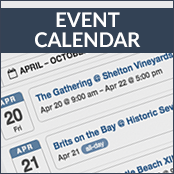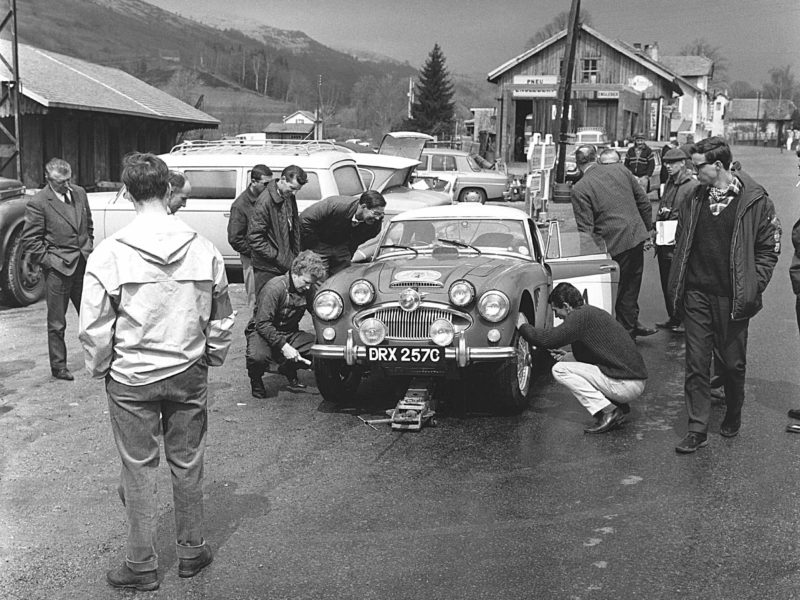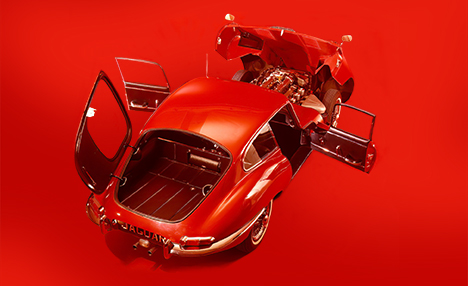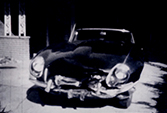All of our British sports cars are fitted with Lucas electrical equipment; indeed, it was William Richard Morris, later Lord Nuffield, who gave Joseph Lucas Ltd., their first really large orders for motor car electrical equipment in the early twenties. But just who was Joseph Lucas, the man who founded what is nowadays an international, multi-million pound corporation? Where and when was he born and how did his life unfold? A couple of years ago I set out to find some of the answers to these questions and, with the assistance of Mr. F.R.D. Slater, Advertising and Promotions Manager of Lucas Industries PLC., I am now in a position to “shed some light” on the life of Joseph Lucas.
Joseph was born on April 12, 1834 in Birmingham, the city with which he and his products were always to remain associated. His formative years were very much influenced by the teaching and ministry of George Dawson, who was to have such a profound effect on the development of Birmingham, that an American observer thought it “the best managed city of the world”. Dawson ran the Church of the Saviour and its associated school and it was here, on Sundays, that the young Joseph Lucas received the better-than-average education which was to stand him in good stead later on when he entered the business world.
At thirteen or fourteen Joseph was apprenticed to silversmiths H. & G.R. Elkington who had pioneered the process of electroplating but, on completing his apprenticeship, instead of staying with Elkington, where he could have earned quite a high wage, in 1860 he chose to start his own small business selling buckets and shovels, and the newly “discovered” paraffin (kerosene in the U.S.A -Ed.) from 86 Carver Street. The city of Birmingham had a long tradition of small metalworking businesses. Indeed, it was claimed that the knives of Boadicea’s chariot had been made in Birmingham (not by Lucas, I hasten to add!). In the atmosphere of an expanding industrial revolution it was therefore fairly easy for someone in Birmingham to start up his own business.
The houses on Carver Street had been poorly built and soon turned to slums. Joseph and his wife Emily, whom he had married in 1854, like many in their day, sought solace in drink until one day the realization that he had a wife and three children to support dawned upon him and he joined the local Temperance Society, a movement he was to support devotedly for the rest of his life.
Joseph began looking around for alternative premises from which he could carry on his small business and, in 1871, he moved to 209 Great King Street. It was his preoccupation with selling paraffin that led him into what was to be the most important aspect of his business for the rest of his life—the manufacture and sale of lamps.
The discovery of petroleum and paraffin in 1859 had given an enormous boost to the lamp manufacturing trade and it wasn’t long before Joseph came upon a product which he admired and which he wanted to sell—the Tom Bowling ship’s lamp. Sale of the lamps soon turned to a desire to manufacture them himself and he took on five men to help him set up his first small factory in Great King Street. In 1875, that factory became known as the Tom Bowling Lamp Works and all Lucas’s products began to be stamped with the initials “T.B.L.W.” Harry Lucas, Joseph’s first born son, who was to play such a major part in the development of the business over the next sixty years, was given the job of costing the materials used in the manufacture.
The next major development which ensured rapid growth of the Lucas business was the bicycle: indeed the development of the bicycle and the life of Joseph Lucas proceeded side by side. In 1879, Lawson’s Bicyclette had incorporated the novel features of two wheels of the same diameter and a chain drive. This “safety” principle was perfected in 1885 in the Rover bicycle and three years later, John Boyd Dunlop’s pneumatic tire at last made cycling an acceptable popular pastime amongst all members of the public. Joseph Lucas was just looking for new products when the bicycling boom began and of course, it was therefore natural for him to begin designing and selling lamps for bicycles.
In 1878, Joseph’s first cycle lamp, the famous “King of the Road” appeared. Joseph and Harry Lucas always stressed the use of quality materials and manufacturing processes in their products (indeed, Louisa Lucas, Harry’s sister, was put in charge of quality control and supervision of the female members of the work force). Much of the next twenty years or so was therefore very often taken up with legal action against rival manufacturers in defense of Lucas patents.
Unfortunately, Joseph’s wife Emily had not joined him in the renunciation of alcohol and Joseph therefore took to spending more and more time traveling the length and breadth of Britain promoting and selling his products so that he could avoid the awkward circumstances at home. Son Harry was left to run the ever expanding factory, and he made a very good job of it, at times even lecturing his father sternly by letter concerning differences in policy.
Apart from catering to the cycle trade. Lucas continued to produce all kinds of lamps—hand (candle) lamps, police lamps, railway men’s lamps and lamps for horse riders. They also continued to manufacture and sell oil cans, cash boxes, letterboxes, cash tills, and sugar boxes, etc.
In September 1882, in recognition of the expansion of the business and the significant part Harry was playing in it, the partnership of Joseph Lucas & Son was formed. At this time, the beginnings of an export business began to emerge, with the Pope Company in the U.S.A stating that they could sell Lucas lamps as cheaply as they could make lamps themselves.
In February 1885, Emily Lucas died and Joseph began spending more time at home in Birmingham. In November of the same year he married his cousin, Maria Tyzack. Cycle lamp production culminated in the definitive “Silver King of the Road” or “Silver King” as it became known; it was still in production as late as 1936. Lucas’s first U.S. patent was taken out in 1889 and the 1890s saw a massive building program at Great King Street in order to cope with the growth of the business.
It was while he was discussing with builders the design of his new factory buildings that Joseph Lucas asked of the builder’s son, “Boy, what is the cheapest thing on earth”? When the terrified boy did not reply, Joseph provided the answer: “LIGHT, and if you ever become a builder, be sure to get plenty of it in your houses and factories.” Joseph Lucas was very fond of apt sayings and mottoes. Another of these concerned his avowed aversion to alcohol and is, perhaps, still very apt today in the context of car club meetings, at least in Britain! He said, “There’s too much club business done in pubs”.
The partnership of Joseph Lucas & Son had proven so successful that in November 1897 a new company, Joseph Lucas Ltd., was formed. Acetylene was just becoming accepted for use in lamps, the Badger Brass manufacturing Co. of Kenosha, Wisconsin, having been the manufacturers of the first practical acetylene bicycle lamp. Lucas soon began manufacturing acetylene lamps, also. Joseph Lucas visited America several times during his life, and after severe customs duties were introduced by the U.S.A. in 1896, he arranged with the New Departure Bell Co. of Bristol, Connecticut to manufacture Lucas bicycle bells under license.
In 1900, Joseph’s second wife, Maria, died and the following year he married Mary Anne Owen. At the company’s Annual General Meeting in November 1902 he confidently looked forward to the coming of the motor car boom and forecast that Lucas’s success in supplying bicycle accessories would be repeated again as motor car manufacture increased. Immediately after the meeting, he departed with his new wife for a combined holiday and business trip to the Mediterranean. After visiting Egypt, they landed at Naples just before Christmas 1902, but sadly by 27th December, Joseph, the old “King of the Road” himself, had died of typhoid fever contracted when, refusing all local wines, in accordance with his temperance principles, he had imbibed the local water instead. The legend goes that the Lucases, never ones to waste money unnecessarily, had Joseph’s body brought back to the U.K. in a Joseph Lucas Ltd. packing case that had contained business samples of “King of the Road” and “Silver King” lamps for the trip! At his funeral service on 14th January 1903, amongst the hymns sung were “Lead Kindly Light” and “No Shadows Beyond.”
My source for all of the information contained in this article is the excellent book by Harold Nockolds, “Lucas—The First 100 Years”, the two volumes of which were first published in 1976 and 1978 respectively.
By John Lawson, Secretary of the MG Y-Type Register







'The Life and Times of Joseph Lucas' has no comments
Be the first to comment this post!